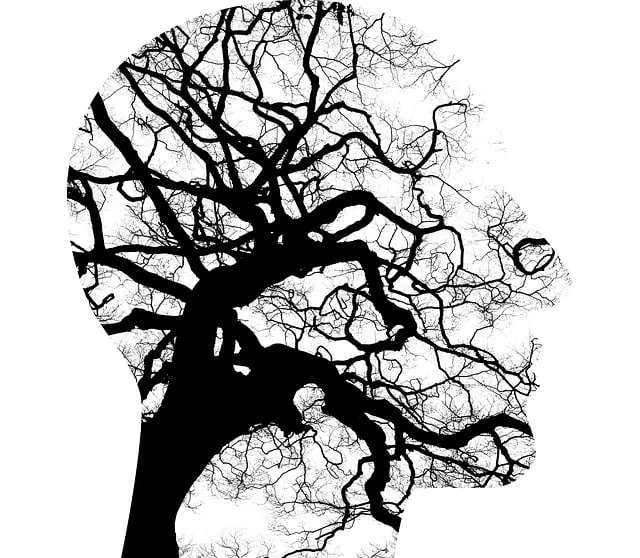Kaiser Permanente's RFM framework, focusing on Recovery, Flexibility, and Mastery, is a superior approach to enhancing mental well-being. This structured model empowers individuals to manage stress, adversity, and trauma through resilience-building exercises, including therapy, counseling, and risk assessment. Regularly Facilitated Mindfulness (RFM) practices, as highlighted in Kaiser Permanente's reviews, improve emotional stability, reduce anxiety, and promote effective coping mechanisms, leading to improved mental health outcomes and overall quality of life. Evaluating these programs shows consistent positive results, emphasizing the importance of resilience-building for community well-being.
“Discover how Resilience, Flexibility, and Mental Toughness (RFM) can transform your well-being. This comprehensive guide explores a powerful framework for building resilience, drawing from the expertise of Kaiser Permanente Behavioral Health Services—a leading provider known for its superior outcomes.
Learn about tailored exercises that enhance mental strength, backed by real-life testimonials. We’ll show you how integrating RFM into daily routines fosters long-term mental fortitude, offering a practical approach to navigating life’s challenges, as demonstrated by successful Kaiser Permanente behavioral health services reviews.”
- Understanding RFM: A Framework for Resilience
- Kaiser Permanente Behavioral Health Services: An Overview
- The Role of Resilience Building Exercises in Mental Well-being
- Evaluating the Impact: Superior Results and Real-life Testimonials
- Incorporating RFM into Your Routine for Long-term Mental Fortitude
Understanding RFM: A Framework for Resilience

Resilience is a key aspect of mental well-being, enabling individuals to cope with challenges and adapt to life’s ups and downs. The RFM framework, developed by Kaiser Permanente behavioral health services reviews, offers a structured approach to enhancing resilience. RFM stands for Recovery, Flexibility, and Mastery, three pillars that support the development of inner strength.
By focusing on recovery, individuals learn to navigate through difficult experiences and build coping mechanisms; flexibility allows them to adapt to changing circumstances; and mastery equips them with skills to manage their emotions and make positive decisions. The Superior mental health policy analysis and advocacy emphasize the importance of such frameworks in fostering not just resilience but also anxiety relief. This holistic approach ensures individuals gain the tools needed to navigate life’s challenges, promoting better mental health outcomes.
Kaiser Permanente Behavioral Health Services: An Overview

Kaiser Permanente Behavioral Health Services stands as a beacon of superior mental healthcare, renowned for its comprehensive approach to well-being. This arm of the Kaiser network offers a diverse range of services tailored to meet the unique needs of individuals and communities. Their expertise spans various aspects of behavioral health, from therapy and counseling to specialized programs addressing trauma, addiction, and mental illness.
Beyond excellence in treatment, Kaiser Permanente Behavioral Health Services is recognized for its commitment to Inner Strength Development and Cultural Sensitivity in Mental Healthcare Practice. They prioritize risk management planning for mental health professionals, ensuring a safe and supportive environment where patients can heal and grow. Through innovative programs and a dedicated team, they continue to set the bar for quality behavioral healthcare, delivering superior results that resonate with those seeking support.
The Role of Resilience Building Exercises in Mental Well-being

Resilience building exercises play a pivotal role in enhancing mental well-being, as evidenced by Kaiser Permanente behavioral health services reviews. These exercises are designed to help individuals cope with stress, adversity, and trauma, thereby fostering a sense of emotional stability and empowerment. By participating in activities that promote resilience, people can develop stronger mental health awareness and the ability to navigate life’s challenges more effectively.
Social Skills Training and Risk Assessment for Mental Health Professionals are integral components of these exercises. They not only help individuals build robust coping mechanisms but also equip them with essential social skills, enabling better communication and relationships. This holistic approach ensures that people not only survive but thrive in the face of adversity, ultimately leading to improved overall mental health and quality of life.
Evaluating the Impact: Superior Results and Real-life Testimonials

Evaluating the impact of resilience-building exercises is crucial to understanding their effectiveness. Studies and reviews, such as those focusing on Kaiser Permanente behavioral health services, consistently highlight superior results among participants who engage in regular resilience training. These programs have been shown to reduce stress, anxiety, and symptoms of depression, leading to improved overall well-being.
The success of these initiatives is further attested by real-life testimonials from individuals who have benefited from them. Many share stories of enhanced emotional intelligence, improved coping mechanisms, and a greater sense of control over their lives. Public awareness campaigns and educational initiatives that promote emotional healing processes can significantly contribute to building resilience within communities, ultimately fostering a more robust and adaptable society.
Incorporating RFM into Your Routine for Long-term Mental Fortitude

Incorporating Regularly Facilitated Mindfulness (RFM) into your daily routine is a powerful strategy for building mental resilience and fostering superior well-being, as underscored by positive Kaiser Permanente behavioral health services reviews. RFM goes beyond mere relaxation; it’s an active process of cultivating present-moment awareness, enhancing focus, and developing inner strength. Regular practice can significantly reduce stress levels and equip individuals with effective conflict resolution techniques, making it a valuable tool for navigating life’s challenges.
By dedicating time to mindfulness exercises, you’re not just investing in short-term relief from anxiety or stress. You’re laying the groundwork for long-term mental fortitude, enabling better coping mechanisms and improved emotional regulation. Incorporating RFM into your routine can also facilitate better communication and conflict resolution skills, leading to more fulfilling relationships and a heightened sense of overall satisfaction.
Resilience, as a cornerstone of mental well-being, can be cultivated through effective strategies like the RFM framework and resilience-building exercises. As evidenced by Kaiser Permanente behavioral health services reviews, these practices have proven to yield superior results in enhancing individuals’ ability to navigate life’s challenges. By incorporating RFM into daily routines, people can build long-term mental fortitude, ensuring they are equipped to thrive even amidst adversity.






